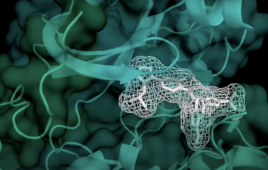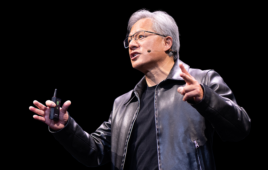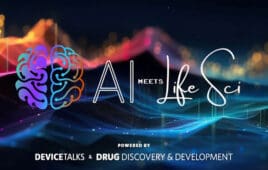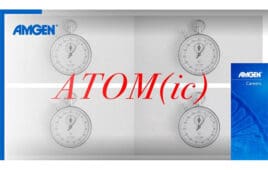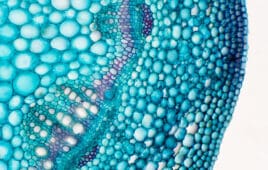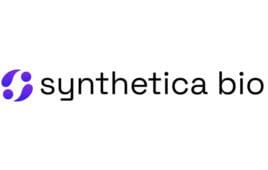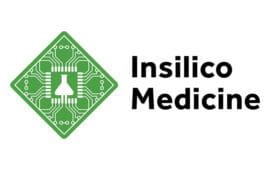Atomwise’s AIMS (Artificial Intelligence Molecule Screening) project has demonstrated significant potential to accelerate drug discovery. In a landmark multiyear study published in Nature Scientific Reports, the project used Atomwise’s AI platform, AtomNet, to successfully identify structurally novel compounds across a diverse range of therapeutic targets. In the virtual high-throughput screening (HTS) study, AtomNet analyzed 318…
From AI transformers to computer-based reasoning to rethinking drug design: AI pioneers discuss the future
In a packed panel discussion at GTC, moderated by NVIDIA Founder and CEO Jensen Huang, the architects of the groundbreaking transformer model gathered to explore their creation’s potential. The panel featured seven of the eight authors of the seminal “Attention Is All You Need Paper” paper, which introduced transformers — a type of neural network…
When will drug development have its ChatGPT moment? Inside ambitious AI initiatives at Sanofi and Medable
In episode 4 of Ai Meets Life Sci, Kayleen Brown, managing editor at DeviceTalks and Brian Buntz, pharma and biotech editor, chat with Helen Merianos, Ph.D., head of R+D portfolio strategy at Sanofi and Michelle Longmire, MD, CEO of Medable. The focus? The two-fold application of AI in their respective companies’ technologies, both for scientific advancement…
Inside Amgen’s ATOMIC strategy to use ML to accelerate clinical trials
Amgen has developed a machine learning platform to slash clinical trial times through smarter site selection. Known as ATOMIC, short for Analytical Trial Optimization Module, the system crunches disparate datasets to predict optimal trial locations, expedite enrollment and trial processes. Early results indicate more than a two times increase in enrollment speed at ATOMIC sites.…
Digital dreams and realities clash pharma and biotech in 2023
The tale of digital pharma and biotech in 2023 is one of two realities. In one corner, you have AI and digital-focused startups and sometimes executives at Big Pharma companies with grand AI ambitions proclaiming the power of the technology. But on the other side of the pharma-AI coin is a more cautious crowd. Here,…
How Lantern Pharma and Code Ocean partnered on oncology drug development
A vision for data-driven drug development in oncology When Peter Carr, principal software architect of Lantern Pharma, stepped into his full-time role in September 2020, the company was on the cusp of a transformation. While AI had been a focus for a number of years, a fresh infusion of cash provided a possibility of expanding…
NLP in drug discovery and the quest for the ‘right’ research elements
In drug discovery and development, data sources are as diverse as they are plentiful. There are comprehensive databases brimming with molecular targets, cellular processes, genomic sequences, proteomic profiles, and metabolite patterns that shed light on disease pathways. Data possibilities in the patient care realm are similarly vast, spanning electronic medical records, imaging datasets, and even…
Assessing the techbio landscape: hype or substance?
The venture capital firm Artis Ventures, founded in 2001, coined the term “techbio” sector to describe biotech platforms where technology and engineering take the lead in advancing drug discovery and biomanufacturing. In circa 2019, the firm contributed to shaping the techbio landscape by setting up venture capital fund named Artis techbio that bridges the gap…
Legacy Healthcare aims to upend alopecia areata treatment with a botanical drug
Imagine a world where botanical drugs could shape the future of medical treatment. Saad Harti, CEO of Swiss company Legacy Healthcare, doesn’t just imagine it; he’s on a mission to make it a reality. With an initial focus on alopecia areata in children and adolescents, Legacy Healthcare believes the plant extract Coacillium could be a…
New AI tool InClinico predicts clinical trial outcomes with 79% accuracy: A closer look with InSilico CEO, Alex Zhavoronkov
Roughly nine out of ten clinical trials fail as a result of factors such as lack of efficacy and unmanageable toxicity, as the journal Pharma Excipients has noted. After seven years of development, Insilico Medicine has scored a breakthrough with its generative AI tool, inClinico. In particular, the tool demonstrated 79% accuracy in predicting the…
Synthetica Bio lates to tap generative AI to spur drug discovery innovation
Interest in generative AI has skyrocketed in 2023. While the generative AI market is already substantial, worth $10 billion in 2022 according to Grand View Research, it is set to balloon by a compound annual growth rate (CAGR) of 35.6% from 2023 to 2030. It’s no wonder that a slew of companies — including Exscientia,…
Sanofi puts AI ‘Plai’ app at the center of drug discovery and clinical trial operations
The French pharmaceutical giant Sanofi has unveiled a new AI-powered app called Plai, developed in partnership with AI platform Aily Labs. This move is part of Sanofi’s plan to become the pioneer in fully integrating AI into all operations, according to CEO Paul Hudson. Plai, designed to compile and process Sanofi’s internal data from various…
QuantHealth taking a data-driven predictive approach to simulate clinical trials
In drug discovery, the process of shooting for regulatory approval can feel less like a sprint and more like a marathon, but with no guarantee of crossing the finish line. Despite the hefty investment of time, effort and resources, the success rate for bringing new drugs to market hasn’t improved in recent decades. The American…
Microsoft details how its technology is advancing drug discovery and biomedical research
As cloud technology matures, life-sciences companies are finding new avenues for business value in life sciences, extending beyond the cost efficiencies typically associated with cloud migrations, as McKinsey noted. In an email statement, Microsoft outlined how its own cloud computing, AI and research capabilities are driving similar innovation for biopharma companies. This article explores Microsoft…
Microsoft goes all in on Azure Quantum to accelerate scientific discovery
In the rapidly evolving landscape of quantum computing, Microsoft is pushing the boundaries with its Azure Quantum platform. As Microsoft CEO Satya Nadella recently announced, “Our goal is to compress the next 250 years of chemistry and material science progress into the next 25,” Nadella said. The executive also noted that, thanks to recent advances…
The shift from manual to machine learning in cell and gene therapy drug discovery
Cell and gene therapy (CGT) manufacturing is rapidly transitioning from scientific curiosity to clinical reality. But the manufacturing complexity of CGTs far outpaces traditional biologics production, presenting a multifaceted challenge that is part scientific, part technological. “The manufacturing process for cell therapies and gene therapies is infinitely more complex than it is for let’s say,…
Insilico’s AI-discovered INS018_055 graduates to phase 2
Roughly a year ago, Insilico Medicine announced that it had dosed the first patient in a phase 1 study of INS018_055, an AI-discovered, first-in-class small molecule inhibitor. Now, the company has progressed to the next stage, launching a phase 2 study for the drug candidate. Insilico, a founding member of NVIDIA Inception, developed its AI…
Quantum-inspired power could brighten drug discovery
In the realm of drug discovery, the Harvard-educated chemist Nick Paras, Ph.D. compares the early stages of identifying new compounds to a game of Zelda, in which a player at times must navigate through dark rooms and solve puzzles to progress. Similarly, medicinal chemists and biochemists too must traverse the vast, often obscure landscape of…
How AI and the cloud can transform R&D workflows and fuel collaboration
The rise of cloud-based systems and AI-assisted analysis has dramatically transformed the landscape of scientific research and collaboration. One striking example is the mRNA company Moderna, which used the cloud to develop and deliver its first clinical batch of a COVID-19 vaccine candidate for phase 1 trials in a mere 42 days after the initial…
Generative AI could boost biopharma R&D productivity by billions, according to McKinsey
Generative AI stands to add trillions of dollars of value to the world economy, according to a recent McKinsey report. The consultancy noted that about three-quarters of the value of generative AI spans four areas — customer operations, marketing and sales, software engineering and R&D. The latter could see a 12% annual lift in global…
Navigating generative AI in drug discovery and data analysis: Seizing the opportunity and avoiding pitfalls
Along with predictive AI, generative AI is emerging as a promising tool in drug discovery. Thanks in part to the rise of ChatGPT, interest in the technology in drug discovery is on the upswing. In March, a preprint appeared examining the potential to use generative AI to enable de novo antibody design. Also this year,…

